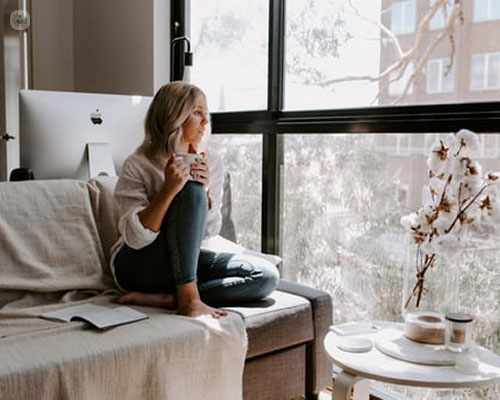Can I still have an endoscopy during COVID-19?
Escrito por:During the coronavirus pandemic, some people will still need to see their gastroenterologist about serious health concerns that need to be diagnosed in relation to their bowels, such as Crohn’s disease, polyps or even bowel cancer detection.
Normally, your doctor would use a fibre-optic endoscopy to make a diagnosis but because the procedure is intrusive and creates aerosol particles, the risks of COVID-19 infection in endoscopy are high at this time
There is, however, an alternative procedure. Here one of our experts, Professor Owen Epstein, tells us about capsule endoscopy which requires no hospital admission and can be completed at home, which is essential during the coronavirus crisis.

Why is fibre-optic endoscopy problematic to carry out at the moment?
Upper and lower endoscopy are intrusive investigations, requiring day case admission, cannulation, sedation, continuous oxygen monitoring, and time to recover. Even under sedation, upper gastrointestinal endoscopy is accompanied by some retching and colonoscopy involves contact with lower bowel contents.
COVID-19 is transmitted by droplet spread and the virus has been identified in the stool for up to two weeks after a negative swab test. As normal service resumes, endoscopy is an intervention where great care will be required to safeguard both patients and endoscopy personnel.
Currently, because it is hard to know if patients are infectious with COVID-19, investigations or surgical interventions of any sort are only going ahead under life-threatening circumstances.
Why is a capsule endoscopy a safe solution?
Capsule endoscopy is a safer alternative. This is how:
- Capsule endoscopy requires a glass of water to swallow the micro TV studio in a pill.
- The capsule travels from mouth to toilet bowl, wirelessly transmitting a video of the bowel to a recording device.
- There is no need for day-case admission.
- The device is delivered in a COVID-19-free area of an outpatient setting.
- The rules of social distancing are readily applied. There is no transmission-risk from body fluids.
- During its journey through the oesophagus, stomach, small and large bowel, the video is wirelessly transmitted to a receiver worn on a belt.
- There is no need to retrieve the capsule from the toilet.
At the Hadley Wood branch of the Royal Free, capsule endoscopy is available to investigate patients who would normally be considered candidates for the two-week cancer pathway or those particularly anxious about long delays for traditional fibre-optic investigation.
What would happen on the day?
You can expect the following:
- Attend the outpatient setting.
- Be fitted with the recorder belt and recording device.
- Swallow the capsule with a sip of water.
- Go home.
- Return the device a number of hours later, as directed.
Professor Epstein is highly-experienced in treating indigestion, irritable bowel syndrome and digestive diseases. Do not hesitate to contact his clinic via his Top Doctor’s profile today if you would like his expert advice in your case.


